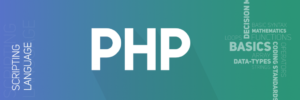If you are an experienced PHP programmer, you may think you already know it all about PHP (including the interns). However, even the most experienced PHP trainers and specialist can improve their skills. The best programmers are constantly developing their coding based on the latest releases, changes and insider knowledge. Take a look at these three useful Advanced PHP Techniques and tips that all PHP developers need to learn to create cleaner and more optimized code.
1. Take Advantage of Unit Testing
Unit testing (such as SimpleTest or PHPUnit) provides a simple way to maintain your codebase and avoid code clutter. First, you can use unit tests to write proof that your code is working as intended. Then you can refactor the code and test again to check whether the new code still works a similar way. You can also use tools such as XdeBug or FirePHP to monitor how your code works and how it works on the front-end and back-end. Watch out for what your code is doing and if you don’t understand something, you can find out the answer from other programmers or documentation online. You also need to keep track of bug reports and strive for clean logs.
Related article – Enhance your skills in PHP with advanced techniques
2. Choose the Right Caching Technique
There are few different caching Advanced PHP techniques – each applies in different circumstances. One of the most universal and simplest ways to cache data and increase PHP performance is to utilize an opcode cache. Opcode caches (like APC or XCache) store opcodes in memory to eliminate a lot of redundant work on each step in the process. Simpler caching methods – such as those that serialize data and store them in a temporary file – also work to optimize your code. Memcached stores data on a central server where numerous servers access it and keeps away from the overhead of network and disk access. This method works best if your application is distributed across multiple servers.
Don’t just use the same cache technique for each project. Take into account the logistics of the project, the scope of the project and your reason for optimization.
3. Connect With Other Programmers
Don’t simply hold your head down coding in isolation. Visit other programming blogs, podcasts, Twitter, and YouTube. Attend programming conferences or workshops in your area and connect with specialists who can show and teach you something new. Take an interest in code reviews and bug reports. Help beginner who are struggling to find out what you already know. Contribute to an open source project to sharpen your abilities. You’ll find that participating and interacting within the programming community enables you to stay current and up-to-date on the latest industry trends. You may even gain and learn some new useful knowledge along the way.
Read also – Top 5 Databases for PHP Web Application Development
